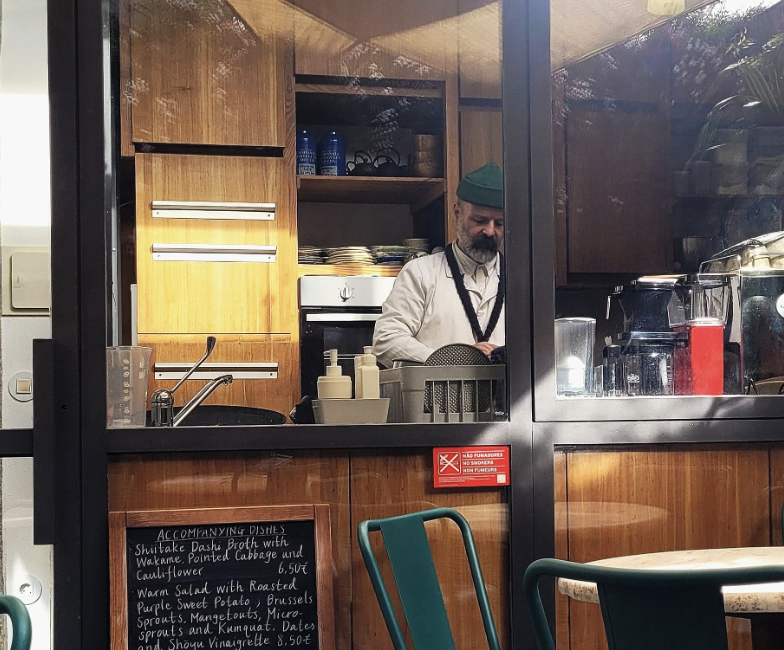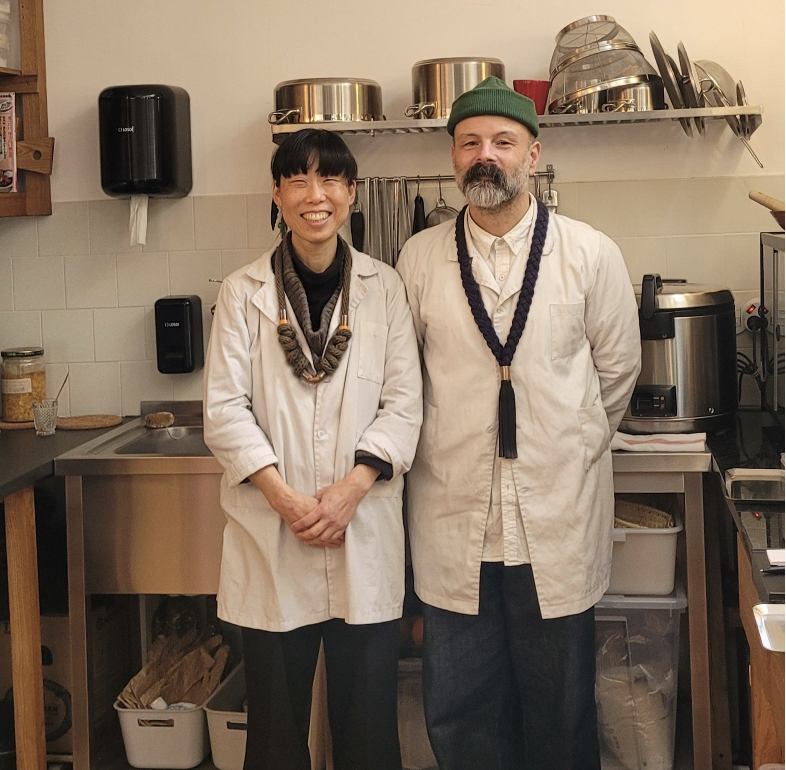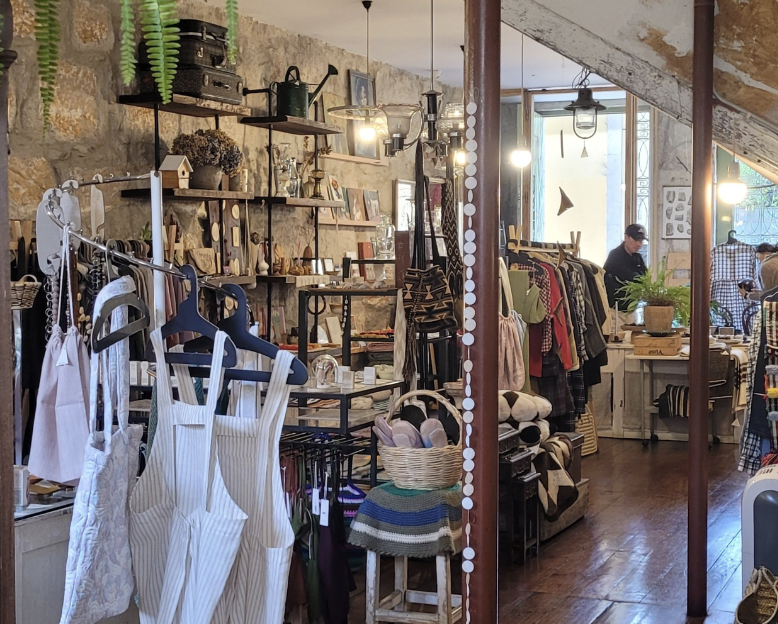Musubu
I adore sharing people’s unique stories with a wider audience and in a way connecting the two sides, but that is not my favourite part. I am being selfish here but the initial conversation that I have with the owners or the chef of the place, I find myself writing about, that is my favourite thing. Because, just like any person interested in reading my words, I also want to get familiarised with the stories behind certain dishes, and people, to know what makes their food special. Sometimes, I forget that I am essentially interviewing them because the conversation becomes so fluid.

It was a pleasure talking to Miguel and Sako, witnessing the ideologies they share amongst themselves as a couple and what they are trying to portray through their café, Musubu. The couple has started many projects which focus on broadening the horizon on how Japanese food is perceived in Porto. Currently, you can find a sushi place at varying price points in almost every area of Porto or restaurants that serve more commonly known dishes along the lines of Ramen. Musubu café is one that presents the flavour packed, lesser known dishes like clear broths (Osumashi), Japanese-style warm salads or what this place mainly focuses on Onigiris/Omusubi. Everything that they cook is made with fresh, seasonal and local produce. Miguel told me about the similarities between the produce that we can find in Portugal and Japan. They are using ingredients present locally and they work so well with these dishes.

In the most basic words, Onigiri is a rice ball with some sort of filling. Even though majority of the flavour comes from the filling, the main component is the rice. It all depends on the quality, the cook and the texture of the rice that ultimately makes this dish work. The rice that is used at Musubu, is sourced from Vale do Sado (valleys along the Sado river in southern Portugal), which is phenomenal (and way more starchier than normal sushi rice). The last time I had an Onigiri, was in Paris, I stood in a queue for an hour and it was great. The Mushroom Onigiri that I had at Musubu was in another league altogether, it is a flavour bomb packed with umami. All these perfectly seasoned recipes are Sako’s take on her cuisine and you can see her personality shine through them.

I love this noticeable Portuguese influence on Japanese dishes because it is similar to Miguel and Sako’s relationship. Both of them were pursuing things vastly different from running a kitchen, when they met in London as students a long time ago and eventually, lot’s of incidents led them here. With Sako’s passion for cooking and the designer mind-set of Miguel, Namban Oporto Kitchen was born in 2013, which was a supper club. They ran it for awhile and I had heard loads about it before it closed down, so it was established how good they were. You can read more in depth about their journey mentioned on the menu of Musubu. (Also, there is a bit of history behind Onigiris, mentioned for you to take in while you enjoy the dish.)

In 2022, Musubu was born, located inside a local product store, Coração Alecrim. It is a gorgeous store that deals with sustainable, hand-made products. Overall, the space is really artistic and super fitting for Musubu because Miguel and Sako are truly artists. They have set up this bold café in such a small place, so beautifully, where everything is done by them. For an instance, they forged all the ceramic ware used for the service. They are even fermenting their own drinks. Everything that is a part of their café is eco-friendly and has been chosen delicately to fit the whole aesthetic of Musubu. The menu is vegan and gluten free. It is not the cheapest place by all means but what they are offering is really rich in value. Of course, the food tastes fantastic but if I had to characterise the food, It would be ‘pure to it’s core’. (Those words sound so divine in my head but it gives off the ‘good for your body’ vibes)
If you are looking to try some good Japanese flavours, in a quiet setting one afternoon, this could be your place (fits to be a great space for remote work as well, but they urge you to get off the digital world and have a real conversation or read a book, perhaps). There is a constant menu of Onigiris but they also host a weekly/daily menu, where they demonstrate their expertise with some proper meals and bigger plates. The regulars do call Sako, ‘The Queen of Soup’ (haven’t tried the soups yet, but I won’t be surprised if she really is) and I had an interesting conversation about curries with the couple, so I am really looking forward to trying more of what Musubu has to offer.